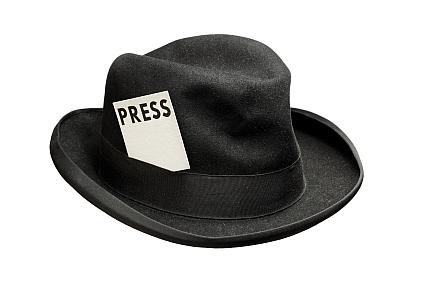10 Health Journalism Tips from Veteran Health Writer Pat Anstett

Editor's Note: As veteran health reporter Patricia Anstett retires after 30 years at the Detroit Free Press, she offers useful tips for journalists, both beginning and experienced. Anstett's 42 years in journalism includes work at four large city dailies: Chicago Today; Chicago Sun-Times; Detroit Free Press; and Detroit News; the National Observer and Congressional Quarterly weekly publications; and Features and News Service, for whom she was a Washington correspondent.
1.When starting out in a new beat or area, arrange as many in-person interviews as you can to build knowledgeable sources you will have for years. Like a picture, a face is worth a thousand words.
2. Learn about the city you cover and follow its news by reading the local papers and business press and listening to all-news radio and NPR. Today, too many reporters don't even read their own newspaper, let alone anything else and their knowledge is slim, not just of their beat but of the communities they cover.
3. Use a tape recorder for two reasons: It will make your reporting extremely accurate but also hearing the words a second time helps wire in new, complicated information into your brain. Even if you never want to take time to transcribe the entire interview, everything is right there when you need it.
4. Break down the big, wide beat of medicine and health care reporting by picking a new subject or two every year – a mini-beat. And then learn that area and make it your own. Cover everything and anything. I told my editors I was doing this, who used it in my performance evaluations to compliment me for tackling new areas of interest.
5. Sign up for every learning opportunity you can: fellowships, seminars and the mini-medical schools that many larger medical schools offer to the public.
6. Learn how to take charge of an interview and direct it to your needs. Early on in my career, I politely let people ramble. You can get back on track with words such as, "I need to get back to the point you made earlier,'' or, "I need to ask you about something else,'' or if all else fails, "Forgive me but … (fill in) I am afraid we got off track about what I need to talk to you about the most."
7. More on interviews: Explain in the beginning of the interview what the story is about and ask how much time the person has available to talk to you. This helps, too, with keeping the interview on track, as you can say, I know you only have about another 10 minutes and I have several more questions I need to ask.
8. Acquire valuable cell phone numbers by asking at the end of an interview for a phone number where you can reach the person after work, just in case the copy desk calls. Don't overuse the number but save it and make use of it down the road.
9. Some of my best sources never wanted to be quoted in my stories. They preferred to be whistle-blowers or insiders dying to talk to someone who may make a difference. Some of my biggest stories came from people like these. You can then use the information to call others to verify what you've were told, or confirm it through a FOIA of information, perhaps.
10. State oversight of medical professions is very slim. Stay on the case because there are terrific stories and now many states post information about disciplinary actions. If you are just starting out, pick one case and try to find out what happened. A knowledgeable source is Dr. Sidney Wolfe in Washington D.C., at the Health Research Group within Ralph Nader's Public Citizen non-profit.
Related Posts:
Talk to Us! Health Journalism from a Patient's Perspective
Healthcare Hashtags: Monitoring Health Conversations in the Twitterverse
Complete Health Reporting: Don't Skip Harms When Covering Medical "Miracles"
Good Reads: 5 Long-Form Health Stories to Inspire and Illuminate

